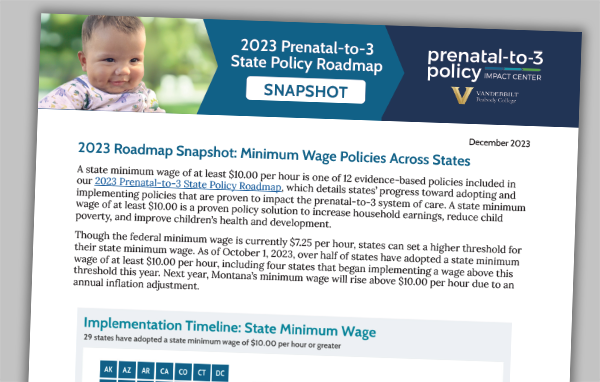A state minimum wage of at least $10.00 per hour is one of 12 evidence-based policies included in our 2023 Prenatal-to-3 State Policy Roadmap, which details states’ progress toward adopting and implementing policies that effectively improve child and family wellbeing.
As of October 1, 2023, over half of states have adopted a state minimum wage of at least $10.00 per hour, including four states that began implementing a wage above that threshold this year. Next year, Montana’s minimum wage will rise above $10.00 per hour due to an annual cost-of-living adjustment.
Higher state minimum wages increase household earnings, reduce child poverty, and improve children’s health and development. State policy choices such as current wage rates, future increases, and the types of workers covered impact the effectiveness of state minimum wage policies.
Just this year, 30 states introduced—and several successfully enacted—legislation to increase their minimum wage or eliminate the subminimum wage for certain populations.

Read the brief for more details on state progress.
The recently updated Prenatal-to-3 State Policy Roadmap provides insight into the core policy levers and further illustrates their interplay through vivid graphics, showcasing the variation in state minimum wage policies across states.




